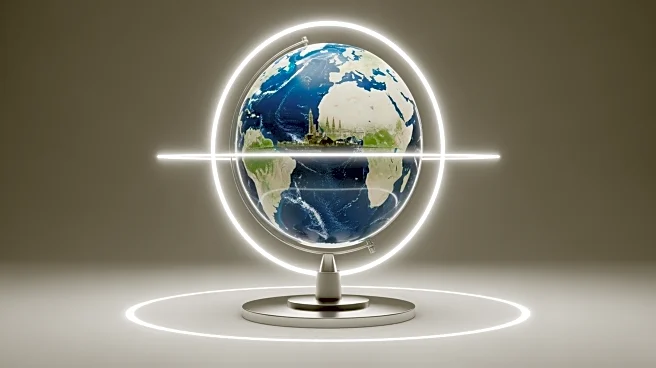What's Happening?
The article discusses the growing concern over the potential for wealthy individuals to engage in geoengineering efforts aimed at altering the Earth's atmosphere. This concern arises from the fact that
the wealthiest 1% are responsible for a significant portion of global emissions. The article highlights the risks associated with unilateral geoengineering actions, such as causing droughts or damaging the ozone layer. It emphasizes the need for an international treaty to govern such actions, as more than 80% of surveyed climate scientists support this idea. The article also touches on the impact of satellite launches, particularly those by Elon Musk's Starlink program, which contribute to atmospheric harm.
Why It's Important?
The potential for billionaires to engage in geoengineering poses significant risks to global climate stability. Unilateral actions could lead to unforeseen consequences, affecting weather patterns and the ozone layer. The call for an international treaty underscores the need for collective decision-making in addressing climate change. This issue is crucial as it highlights the disproportionate influence of the wealthiest individuals on global emissions and the environment. The article suggests that supporting international law could be a way for the wealthy to contribute positively to global governance and climate efforts.
What's Next?
The article suggests that the next steps involve the establishment of an international treaty to regulate geoengineering efforts. This would require global cooperation and agreement among nations to prevent unilateral actions that could have detrimental effects on the planet. The focus will likely be on engaging political leaders, environmental organizations, and the scientific community to advocate for such a treaty. Additionally, there may be increased scrutiny on satellite launches and their environmental impact, prompting discussions on regulations in this area.
Beyond the Headlines
The deeper implications of this issue involve ethical considerations regarding the power dynamics in climate change mitigation. The ability of the wealthiest individuals to influence global climate efforts raises questions about equity and justice in environmental governance. There is also a cultural dimension, as the reliance on technological solutions like geoengineering may overshadow traditional and community-based approaches to climate resilience. Long-term shifts could include a reevaluation of the role of wealth in environmental policy and the importance of inclusive decision-making processes.









